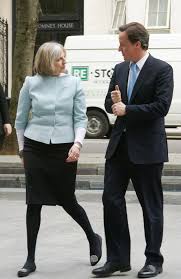On a practical level it appears that the apparatus of state has crumbled. It has been allowed to wither under various guises. Perceived lack of efficiency, a need to privatise for dogmatic principles of a post-Thatcherite era, a sale of assets to prop up an ailing economy during the financial crisis of the late noughties and latterly “austerity”.

For those who have reason to interact with the vehicles of state the demise is clear to see.
Privatised prisons propped up by emergency state intervention when order breaks down, as it frequently seems to. Prisoners filming ritual beatings for drugs.
Benefits’ services run by private companies; similarly almost all utilities provision. The NHS on its way. Schools run by academy trusts.
Post Offices all but vanished from high streets, tucked away in a branch of Martin’s or W H Smith.
Courts closed down, Police stations closed down, ambulance stations and fire stations closed down. Central administration helplines with never-ending menus to navigate.
In my interaction with HM Court Service I used to go 10 miles to my local County Court but then my local Court office closed, as did the one 25 miles away, leaving another 20 miles away open by appointment only.
There is a strange feeling in local Courts now. Many of them are either closed or resemble the Marie Celeste.

A Court used to be a place in which people who worked there had names. They were real people. You could ask for “Mr X” or “Mrs Y” to help and they would willingly oblige. A working world of building relationships and human interaction. Now, the national issuing office is nearer to 200 miles away, served by a telephone administration service. I am not critical of those who work there or answer the telephone advice line. Quite the reverse.
The state has virtually no visible role. Group 4 Security is more logo-recognisable than the machinery of state. Councils are selling off and converting buildings of significance to meet their budgets and keep Council Tax bills down.

A visit to the Continent places the British position in perspective. The state becomes visible again. Town halls, Courts, flags, railway workers with whistles and uniforms, the state logo on hats of smart uniforms.
Signs announcing European Union and state funding arrangements for roads, bridges and projects, shown to the precise Euro in investment value.

The result of the referendum has many causes, too complicated to apportion between the factors. The easy targets for the politically outraged are the right-wing and highly xenophobic press, or the self-serving ambitions of disingenuous politicians.
There is, however, an even more fundamental reason why the slim majority of those who participated on 23rd June 2016 voted to do something that no European politician, save for the likes of Farage, countenanced or thought possible. After all, the club of 28 is the richest economic members’ club on the planet to which excluded nations aspire only to belong.
The state at state-level has almost ceased to function. At supra-national level the non-existence of the nation state in the United Kingdom has meant that the European Union has similarly been let down and neglected. No signposts showing investment (even in areas heavily reliant on it), no flags on town halls, perhaps no town hall at all.
It is ironic that those who wanted to leave the European Union turned their attentions to a time when Britain was perceived by them to be Great.
 The time that they yearn for is an era when the state assumed a greater proportion of GDP. A time when it was readily visible in terms of nationalised industries, utilities, educational provision and infrastructure of government. The Conservative Party makes no secret of its desire to reduce the role of the state and the proportion of expenditure it controls, to levels progressively lower. Whether this is a bona fide attempt to balance public finances or a politically dogmatic deep policy agenda masquerading as financial prudence can be left to speculation.
The time that they yearn for is an era when the state assumed a greater proportion of GDP. A time when it was readily visible in terms of nationalised industries, utilities, educational provision and infrastructure of government. The Conservative Party makes no secret of its desire to reduce the role of the state and the proportion of expenditure it controls, to levels progressively lower. Whether this is a bona fide attempt to balance public finances or a politically dogmatic deep policy agenda masquerading as financial prudence can be left to speculation.
A change in the visibility of the state seems long overdue. If and to the extent, however, that this means contemplating withdrawal from the European Convention on Human Rights (which is something more significant than EU legislation but deliberately confused with it mendaciously by Eurosceptics) and replacing it with a national Bill of Rights then the resurrection of the symbols of state might be something we should fear and not welcome.
Soldiers on our streets provide a measure of increased visibility of state. Coming on the back of the paring of the state to its bare bones it should be an uncomfortable place for the government to be.
Aristotle said of the state that it was “not a mere society, having a common place, established for the prevention of mutual crime and for the sake of exchange…”
But our civilian state has been left impotent. The referendum vote has delivered a message that the public actually want more and not less visibility of the state; to a government committed to do the opposite.

When Theresa May announced that she was intending to create a Britain which “worked for everybody” and her Chancellor rolled back austerity the pair of them may have had Aristotle in mind when he said that “if liberty and equality, as is thought by some, are chiefly to be found in democracy, they will be best attained when all persons alike share in the government to the utmost“.
Her “working for everybody” mantra was a modern-day Marie Antoinette moment. The people of Boston, Lincolnshire, ravaged by underinvestment were being offered their cake. They must be wondering if and when it will ever be served up.


 The net migration figure last year was 273,000 of whom 164,000 people came from outside the EU. The 17th May 2017 London Evening Standard editorial was particularly savage about Theresa May’s pledge to reduce the figure down to the “tens of thousands”. Its editor served in the same government:-
The net migration figure last year was 273,000 of whom 164,000 people came from outside the EU. The 17th May 2017 London Evening Standard editorial was particularly savage about Theresa May’s pledge to reduce the figure down to the “tens of thousands”. Its editor served in the same government:- However, she had at her disposal a means for controlling immigration numbers, notwithstanding freedom of movement which derived from the European Union itself, found in Article 7 of Directive 2004/38/EC which prescribes and defines rights of residence in other member states in a way which might be surprising to some who voted to leave the European Union upon the basis that uncontrolled immigration was their “burning issue”.
However, she had at her disposal a means for controlling immigration numbers, notwithstanding freedom of movement which derived from the European Union itself, found in Article 7 of Directive 2004/38/EC which prescribes and defines rights of residence in other member states in a way which might be surprising to some who voted to leave the European Union upon the basis that uncontrolled immigration was their “burning issue”. Put simply, there will not be enough hands on the decks. The decks then become tarnished, worn and unfit for purpose. Or the produce rots.
Put simply, there will not be enough hands on the decks. The decks then become tarnished, worn and unfit for purpose. Or the produce rots.